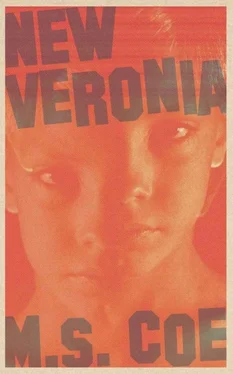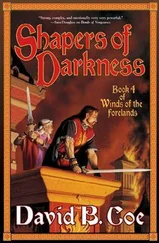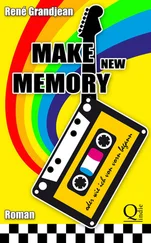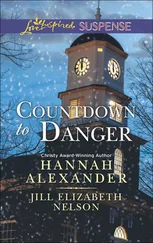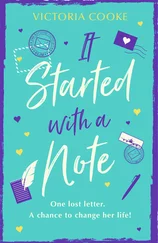I’m worried what will happen to me, to my brain, now that this writing and doodling will no longer occupy it, now that the story is all down in pen and it’s likely that nothing much will change for me ever again. The years of my future stretch stagnant and unending, so I carry this book around wherever it’s allowed, which has had unexpected consequences: the other inmates call me Bible Boy, and I think that’s what keeps them from messing with me too much—lots of the guys in here believe in a vengeful God. It’s a neat trick, really, to have tucked my story, this reminder of my other life, into a book that everyone pretends to respect. If this had been Shakespeare, poor doomed Hamlet and King Lear and all the rest would be in tatters across the yard by now, and I’d sport perpetual black eyes for being a theater nerd. But instead I’m left in peace to scan the margins of my bible, and the words I’ve written there remind me that I had a different life, once, that a different life is possible. Being locked up, you can forget that too easily. So I stare at my handwriting getting smaller and more cramped near the back of the book, as I come closer to running out of room, and I try to accept that this will be my whole existence.
Jail is dehumanizing, of course it is, but the way they really get you is by keeping everything unchanged. Meal times, recreation times, announcements, hygiene. Can you be a real person if you never get to decide when to shower, or are you more like a character in a play who is obligated to shower in line thirteen of scene two, night after night, forever?
The thing that really bothers me is, if life in lockup is always the same, and lockup will be my life forever, then I’ll never get to remember anything new, not ever again. The day I’m living will be the same as all the days before it, so instead of memories, they’re just routines. But to never make another memory can be a comfort, too: the only way I’m able to fall asleep at night is to chant to myself, over and over, that this right here is my forever.
One of the saddest sights in my narrow world is the breakfast tray arriving through a slot in the metal door at exactly five minutes after six. Nine minutes later, when I’m brushing my teeth, I always do it hard enough to make my gums bleed, to prove to myself that blood is still leaking through my veins, because I feel emptied out, like nothing is inside of me and nothing good will come out of me ever again. But I guess it doesn’t need to, seeing as my future is a huge pile of zilch.
The bars of my cell do this funny thing when you pace past them: they move together and apart, together and apart, and sometimes this gives me the idea that they can meld and melt, that they aren’t as solid as everyone wants to think. But that’s just looking: in my hands, they feel hard and cold as bone.
Thank you to my first and best reader, Will Cordeiro, and to Tiki “Dog” Coco for the lap warming. Also, thanks to Lawrence Lenhart for the idea and to Gavin Buckley and Jamison Crabtree for their manly insights.
Many thanks to my inspirational mentors at Cornell: Stephanie Vaughn, J. Robert Lennon, and Ernesto Quiñonez. Plus my MFA cohort, especially Laurel Lathrop, Tacey Atsitty, Benjamin Garcia, and Elizabeth Rogers.
And, of course, much gratitude to my eclectic Tucson workshop: Cybele Knowles and Ted McLoof. From my time at the University of Arizona, thank you to Donald Dunbar, Jason Brown, Manuel Muñoz, Matthew Rotando, and Elizabeth Evans. The University of Arizona Poetry Center will always be my favorite place to read—thank you to its dedicated staff and volunteers, and to Gail Browne for being the best boss.
I am indebted to Christian Soto, Andie Frances, Meredith Heller, Michelle Coe, Lara Bennett, and Christie Melnick for their support. Thank you to the Bushes and Cordeiros for acquainting me with Delaware. I am also grateful to the Averbachs and Les and Elana Hunter for a beautiful and inspirational summer space in which to write. Founding Coes, thank you for always keeping books in the house.
A huge thanks to Christoph Paul and Leza Cantoral for their editorial prowess and for wanting to publish this book in the first place, and to Matthew Revert for the excellent cover design.

M. S. Coe has stories published in Antioch Review , The Cantabrigian , Electric Literature , Cosmonauts Avenue , jmww , and elsewhere. Coe has completed writing residencies at Petrified Forest National Park, Herbert Hoover National Historic Site, and the Ora Lerman Trust’s Soaring Gardens Artist Retreat. Coe, who is based in Flagstaff, Arizona, earned an MFA from Cornell University and acts as the co-editor of Eggtooth Editions.
TRAGEDY QUEENS: STORIES INSPIRED BY LANA DEL REY & SYLVIA PLATH
Edited by Leza Cantoral
GIRL LIKE A BOMB
Autumn Christian
CENOTE CITY
Monique Quintana
99 POEMS TO CURE WHATEVER’S WRONG WITH YOU OR CREATE THE PROBLEMS YOU NEED
Sam Pink
THIS BOOK IS BROUGHT TO YOU BY MY STUDENT LOANS
Megan J. Kaleita
HEXIS
Charlene Elsby
I’M FROM NOWHERE
Lindsay Lerman
NIGHTMARES IN ECSTASY
Brendan Vidito
PAPI DOESN’T LOVE ME NO MORE
Anna Suarez
ARSENAL/SIN DOCUMENTOS
Francesco Levato
FOGHORN LEGHORN
Big Bruiser Dope Boy
TRY NOT TO THINK BAD THOUGHTS
Art by Matthew Revert
SEQUELLAND
Jay Slayton-Joslin
JAH HILLS
Unathi Slasha
GIMME THE LOOT: STORIES INSPIRED BY NOTORIOUS B.I.G
Edited by Gabino Iglesias
THE HAUNTING OF THE PARANORMAL ROMANCE AWARDS
Christoph Paul & Mandy De Sandra
DARK MOONS RISING IN A STARLESS NIGHT
Mame Bougouma Diene
TRASH PANDA
Leza Cantoral

WE PUT THE LIT IN LITERARY
CLASHBOOKS.COM
FOLLOW
TWITTER
IG
FB
@clashbooks
EMAIL
clashmediabooks@gmail.com
“This coming-of-age novel, steeped in toxic masculinity and homespun rage, is as funny and disturbing as anything I’ve ever read. It’s a sex comedy, road novel, and crime thriller all in one, rendered in deft and wicked prose that recalls Vonnegut, Atwood, and O’Connor. M.S. Coe is an uproarious and terrifying new American voice.”
J. Robert Lennon, author of BROKEN RIVER
“ New Veronia is masterfully crafted, Lord of the Fies -esque, stunning, and deep. No line is wasted.”
Autumn Christian, author of GIRL LIKE A BOMB
“New Veronia is intense. As the early chapters develop, Coe develops complex psychological insight into the minds of and the power relations between Bennet, Toshi and Jay. The atmosphere shifts from early unease to a late terror, but a young and bungling terror wrought by teenage boys coming of age in an unforgiving milieu that, like Coe’s book, never lets up.”
Читать дальше
